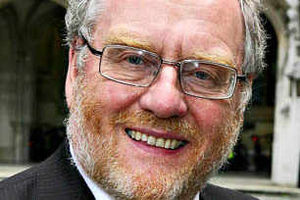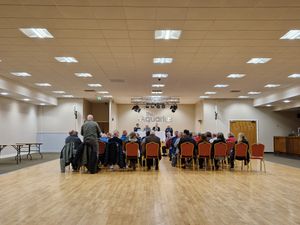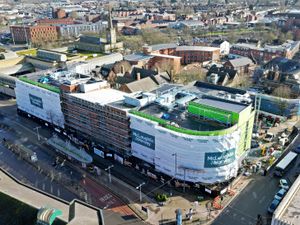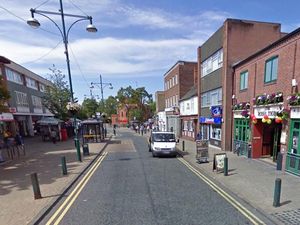Congestion charge is 'tax on work', says former minister John Spellar
Revived proposals for a congestion charge to cut the number of cars on the road in the West Midlands have been branded a 'tax on work' by a former transport minister.

John Spellar, Labour MP for Warley, criticised the idea contained in a wide-ranging report on the future of transport in Birmingham, which could have implications for the rest of the West Midlands.
The idea has been floated by councillors in the city as they try to find ways to cut the number of cars in the city centre by 200,000 a year by 2031 - a move intended to offset the predicted growth in traffic.
The council has also raised the idea of copying Nottingham with a £334-per-year charge on every worker's parking space owned by businesses within the city centre.
Black Country council leaders such as Dudley's David Sparks and Sandwell's Darren Cooper have already said they would not accept the idea if it spread beyond Birmingham.
Now they have been backed by Mr Spellar, who served as a minister of state for transport from 2001 to 2003.
Would a congestion charge be a good idea? Leave your comments below.
He said: "I am delighted to see that David Sparks and Darren Cooper have opposed this daft idea that seems to come out of Birmingham every few years.
"The last time they tried it the Black Country boroughs forced a common sense approach, while Manchester went ahead with a disastrous referendum.
"Let's be clear it would be a tax on people going to work.
"We shouldn't waste any more money on so-called studies but toss the idea straight out of the window."
The draft Birmingham Mobility Action Plan raises the prospect of a congestion charge six years after it was originally ruled out.
How else could congestion in the West Midlands be reduced? Leave your comments below.
But it suggests the scheme could be introduced first and then put to a public vote so that people would have a chance to get used to it, with transport bosses hoping they would vote to keep it as has happened in Stockholm in Sweden.
The council report reads: "Another available policy tool could be to directly charge road users. There are many different ways a scheme of this type could be brought forward.
"At one end of the scale there could be a wholesale change in the way that we all pay for road use which would be led from a national government.
"Other forms of charging could be collected at a local level and include schemes similar to those operating in London and Stockholm. This debate has been in the public eye as recently as 2008 when the Government funded a series of studies into the feasibility of road pricing in urban areas. The high profile cases were in Manchester and Edinburgh where local referendums failed to convince voters of the benefits. Despite these public opinion setbacks there is strong evidence that fair and equitable schemes are possible and that there are significant benefits to be gained – benefits both from generating revenue for transport infrastructure, but also to society and local economies from reductions in car use."
See also: Free M6 Toll plan to help beat motorway congestion.





